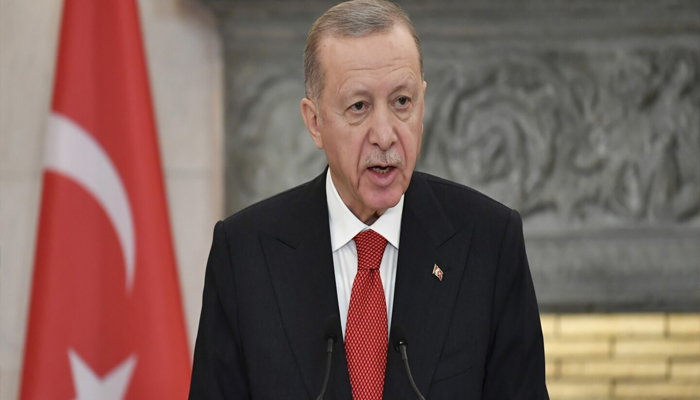
Istanbul: Turkish President Recep Tayyip Erdogan said that no one has the power to displace Palestinians from their homeland. “No one has the power to expel Gazans from their ancient and eternal homeland. Gaza, the West Bank, and East Jerusalem all belong to the Palestinians,” Erdogan told a press conference on Sunday at Ataturk Airport before departing for a three-nation Asia tour.
Despite the ceasefire agreement between Israel and Hamas, “we see that the Israeli government has more sinister and inhuman plans in mind,” Erdogan said. “Under the pressure of the Zionist lobby, the new US administration’s suggestions regarding Gaza have no merit or value for us,” he added.
During a joint press conference in Washington with Israeli Prime Minister Benjamin Netanyahu on Tuesday, US President Donald Trump said the United States plans to “take control of the Gaza Strip,” move Palestinians to neighbouring countries, and redevelop the coastal enclave, Xinhua news agency reported.
“The Gaza Strip would be turned over to the United States by Israel at the conclusion of fighting,” Trump wrote, insisting that no US soldiers would be needed to gain control of the region. “The Palestinians, people like Chuck Schumer, would have already been resettled in far safer and more beautiful communities, with new and modern homes, in the region,” the president added.
On Thursday, Netanyahu suggested during an interview with Israel’s Channel 14 that “Saudis can establish a Palestinian state in Saudi Arabia; they have plenty of land there.” Both Trump’s and Netanyahu’s remarks have sparked regional and international outcry, with many countries voicing their rejection of displacing Palestinians from their homeland and their support for the two-state solution.
